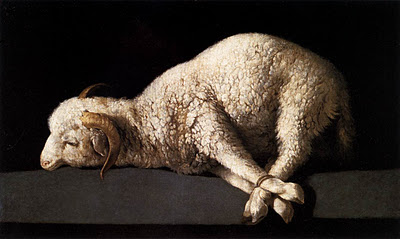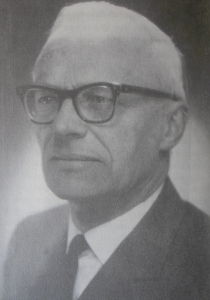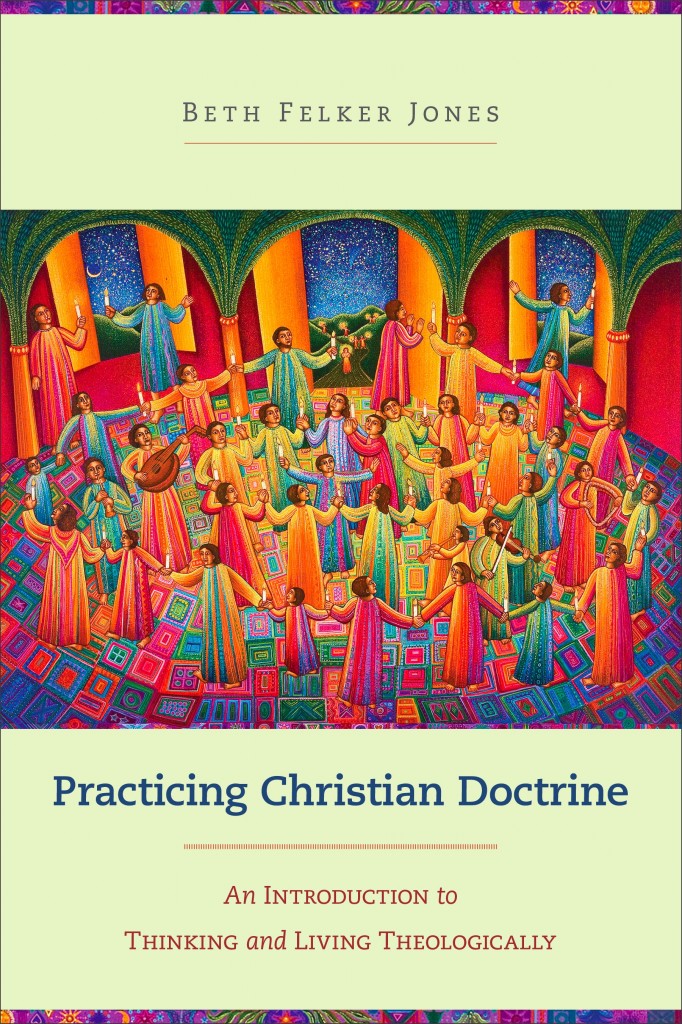 Vanhoozer accepts several aspects of the postmodern critique of atonement theology, especially the temptation to reduce atonement to one description of its intent and efficacy. “We need a way to think non-reductively about the cross” (397). No theory of the cross is adequate in itself, and all the theories together, will not exhaust the meaning and mystery that is the cross. In a typically amusing and insightful quip, Vanhoozer suggests that,
Vanhoozer accepts several aspects of the postmodern critique of atonement theology, especially the temptation to reduce atonement to one description of its intent and efficacy. “We need a way to think non-reductively about the cross” (397). No theory of the cross is adequate in itself, and all the theories together, will not exhaust the meaning and mystery that is the cross. In a typically amusing and insightful quip, Vanhoozer suggests that,
Some atonement theories may, ironically, partake more of what Luther called the ‘theology of glory’—a trust in human reason to find out the ways of God—than they do the ‘theology of the cross.’ The cross represents a powerful critique of attempts to ‘explain’ God as well as attempts to make oneself right before God (401-402).
Thus Vanhoozer also appreciates the postmodern emphasis on ‘excess’—the cross is a case of how much more (Romans 5:9), always and forever exceeding our understanding of its depths and effects. Nevertheless, Vanhoozer’s non-reductive reading of the cross cuts both ways, and he challenges the postmodern temptation to reduce the biblical testimony of the divine work at the cross to a work only of God’s love and not also of his justice, or to an exemplary rather than also an objective work of God on our behalf.
Vanhoozer’s theology of the atonement circles around several key features. First, he insists that the atonement must be understood within the economies of grace and covenant rather than an economy of exchange. God did not have to do anything; “there is no causal explanation for grace” (396). What God did do was give himself, a gift of gratuitous love beyond all reason. The death of Jesus must be understood in terms of Old Testament covenantal categories of exodus (liberation), exile (punishment), and restoration and return (reconciliation). Thus Jesus’ death includes both legal and relational aspects, both punitive/retributive and expiatory/ liberational aspects; these polarities must not be reduced on the one side or the other.
“This is my blood of the covenant, which is poured out for many” (Mk 14:24). … What Jesus is claiming in the Last Supper is that his broken body and shed blood are the place where sin is dealt with…making possible life in the presence of God. … The shed blood is a sign that God has proved this covenant faithfulness precisely by undergoing the sanctions, legal and relational, for covenant disobedience (398, original emphasis).
Second, Vanhoozer insists that a doctrine of the atonement must give equal ultimacy to both God’s love and God’s light (his justice and holiness):
The death of Jesus represents both the excess that is constitutive of the gift (love), and the excess that is constitutive of one’s ethical duty towards another (justice, as understood by postmoderns). God’s reconciling act in the death of Christ was ‘excessive.’ In loving his enemies (Rom. 5:10), God brings his covenant partner to justice, not simply retribution. … God did not merely compensate for human sin; he did more. He did not simply make up sin’s deficit; he destroyed it. The New Testament, of course, knows this ‘excess’ by its proper covenantal name: grace. … The economy of covenantal grace is not exhausted by the logic of penal substitution even though the latter has a legitimate place (403-404).
Third, Vanhoozer’s understanding of the atonement is necessarily substitutionary: “Substitution is the principle that best corresponds to the preposition (hyper); God pours himself out for us, not in an economic exchange, but in an excess of justice and love” (403, slightly altered). Substitution is a necessary if not sufficient condition for understanding the biblical testimony to the death of Christ. Jesus died for us.
Finally, Jesus’ death is excessive, an economy of eschatological promise, gift and blessing whereby his death issues in the gift of the Holy Spirit—God’s self-gift to the believer—which bursts the limits of an economy of exchange and calls forth the free subjective response of the believer.
Jesus gives his body and blood for us, and in return we receive his Spirit, the operative principle of the new covenant and of the new age. Jesus’ death both creates and cleanses a new temple, the people of God. … Jesus’ death on the cross is a new exodus, a new Passover supper, a new return from exile, an entry into a new kind of promised land, a building of a new and better temple. God reconciles the world to himself by providing his own Son as a substitute for the exile that should be ours. Jesus is God’s gift, the goat that bears our guilt—the covenantal curse, separation from the promises of God—who in doing so enables our covenant restoration. Jesus’ death on the cross is at once an exodus and an exile, the condition of the possibility of our entry to the promised land of the Holy Spirit (399, original emphasis).





